A Conversation with CFO of Apple Luca Maestri
Last week the Consulate General of Italy in New York hosted Luca Maestri, Chief Financial Officer of Apple Inc., in conversation with journalist and award winning author, Maria Teresa Cometto. The evening was sponsored by the Italian Cultural Institute and is the first of the series “Managers: from Italy to Top Global Businesses,” which focuses on the excellence of Italian human capital and personal success stories, presenting Italian top managers who hold important positions in global companies.
Consul General Francesco Genuardi opened the evening, welcoming Maestri and acknowledging his investment in Naples as an expression of how much he believes in Italy as an innovative country. (Last year, Apple partnered with the Università di Napoli to open the first ever iOS Developer Academy in Europe.)
Maestri was born in Rome, where he went on to receive a Bachelor of Economics from Luiss University before receiving his Master of Science in Management from Boston University. He joined Apple in 2013, preceded by his 20 years at General Motors and his succeeding time at Nokia Siemens Networks and Xerox. After living in Switzerland, Brazil, and Germany—to name just a few of the many countries his family once called home, he now resides with his wife and two children in Cupertino, California.
Before introducing Cometto, Genuardi thanked all the Italians who hold key roles in the US for their pride in their Italian heritage, Maestri included. Cometto is based in New York and has been covering business and high-tech for Corriere della Sera since 2000. Naturally, her first question for Maestri was whether or not he put an Italian espresso machine in his office, as he told her he would four years ago. Fortunately, he didn’t have to because an Italian has been running Apple’s food services since ’97. He boasted, “We have the best Italian coffee that you can find in the US.” From there, Cometto probed him on a diverse array of topics from his personal life to how Italian entrepreneurs can successfully compete in the global market.
The Italian Education System and the Labor Market
As Cometto mentioned, Maestri was recognized as the alumnus of the year at Luiss. In fact, throughout the evening Maestri expressed his gratitude to his alma mater and stressed his confidence in the Italian education system. He explained how he’s worked all over the world, including in the US, Latin America, Asia, and many European countries, and is “absolutely convinced that Italy has a phenomenal education system.” He believes students come out of Italian schools extremely well prepared, particularly when they combine a business degree with a classical education.
However, he is concerned about the linkage between the academic world and the labor market. “That’s something that needs to be worked on in Italy: creating an interrelation between what you learn in school and coming out with a university degree to getting a job.”
He also lamented that the Italian youth is “resigned to the fact that opportunities are not there.” He acclaimed, “What the young people need to understand is that it’s truly much easier to have global opportunities today than it was 30 years ago. The Internet has really made the world flat. If you have the ambition and the willingness to take a limited amount of risks, the opportunities are there and the foundation from an education standpoint is there.”
Italians in the Digital Industry
According to Maestri, the Italian education system matched with Italian creativity will allow the country to continue to produce individuals who will contribute to the digital industry. Similar to his earlier reluctance, he is skeptical about the ability of an Italian company to actually drive some of this innovation. Not because Italians are not capable but because Italian startups do not have the same availability of capital as Silicon Valley. His two more concerns are the availability of engineering talent (which was the driving force behind the training center in Europe) and the bureaucracy that surrounds the business world in Italy.
Furthermore, he believes that there are several other industries that Italian entrepreneurs can compete successfully in the global market. As he explained, “I’ve learned that you can spend your life working on your strengths or you can spend your life working on your weaknesses. I think it’s much more productive at some point just to work on your strengths.” For example, he does not suggest that Italy pursue a venture that requires scale. “We are great at design from industrial to interior. We created fashion, food, in general artisanship. We’re not great at making the most. We’re really good at making the best, which is by the way the recipe at Apple.”
His Time at Xerox
Though Maestri left his post as Executive Vice President and CFO at Xerox for Apple, he reflects on his experience there with great respect. At the time the company was undergoing a major business shift into a services enterprise. As Cometto explained, Xerox was “trying to change from its traditional business—the famous priming machine—to the new digital products.” This transformation demonstrated to Maestri “how a company needs to adapt because what works today is not necessarily going to work 20 years from now.” He continued, “It really taught me that companies need to be able to adjust and that living with what you had in the past is not going to be sufficient for the future.”
Italians at Apple
When questioned about the vast amount of Italians working at Apple, Maestri credited Italy’s aforementioned “world class” education system. He also explained that Apple values diversity. “Apple really is big on inclusion and diversity. It’s something that Steve promoted from the very beginning as a son of immigrants. We believe that having as many perspectives as possible within the company will allow us to make better products.”
Generally, this mentality is typical throughout the global market. Maestri can personally attest that not only has he not fought against stereotypes, but also that his Italian heritage has been a huge asset for his success.
Maestri and His Family’s Personal iPhone Usage
Maestri wakes up every morning at 4:30, but he’s not all work and no play. While he uses the Bloomberg app a lot for its real time information on financial markets, he prefers his sports apps like ESPN. In fact, if he had to choose another career he would like to be a sports journalist, which was a notable revelation after he shared that “the apps on your iPhone screen are a mirror of your life.” He also likes OpenTable and isn’t big on social media.
Given the company he works for, it’s funny that he’s confronted with the issue of regulating technology for his children. But, as he pointed out, it’s a problem all parents face. He admits, “These devices absorb so much of kids’ lives and it’s a bit of a challenge to set the boundaries” Therefore, his wife decided to use Circle as a means to moderate their children's iPhones and iPads. The product is a small box that controls all of the devices on the home network and allows parents to pause screens at whatever given time without having to physically take the apparatuses away. While his kids still get a little hostile (less so than before), he’s thankful that they’re not glued to the screens when they’re at school.






























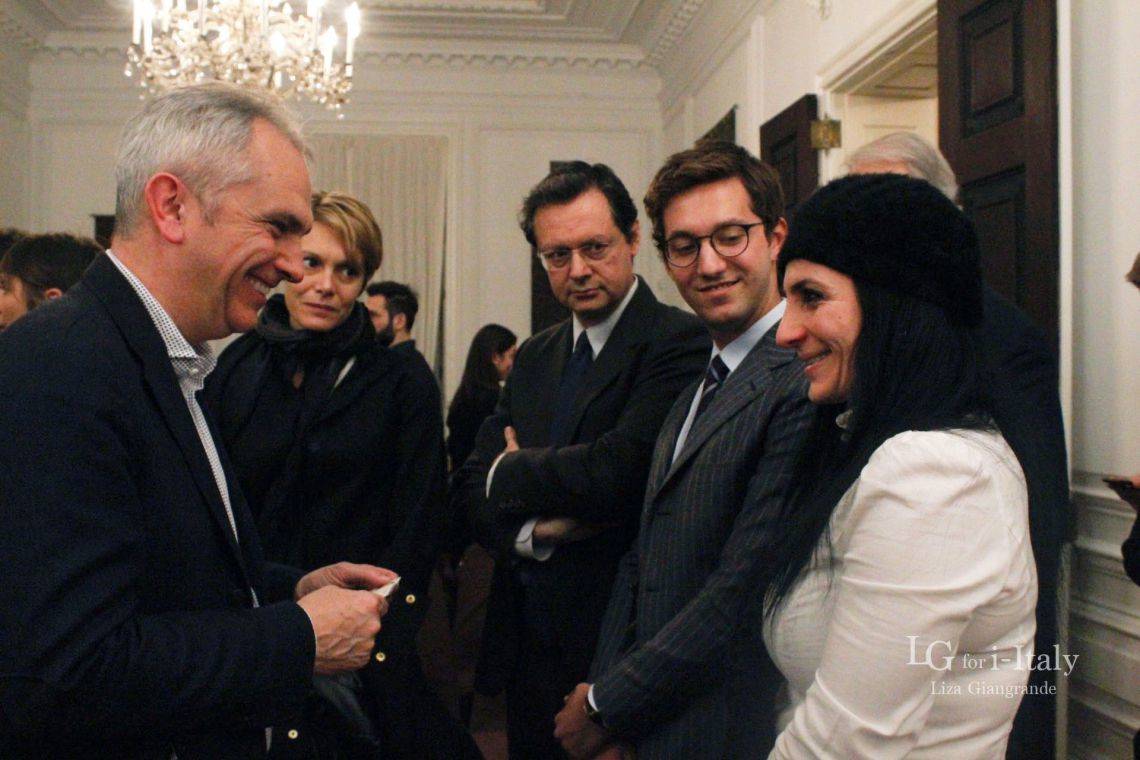
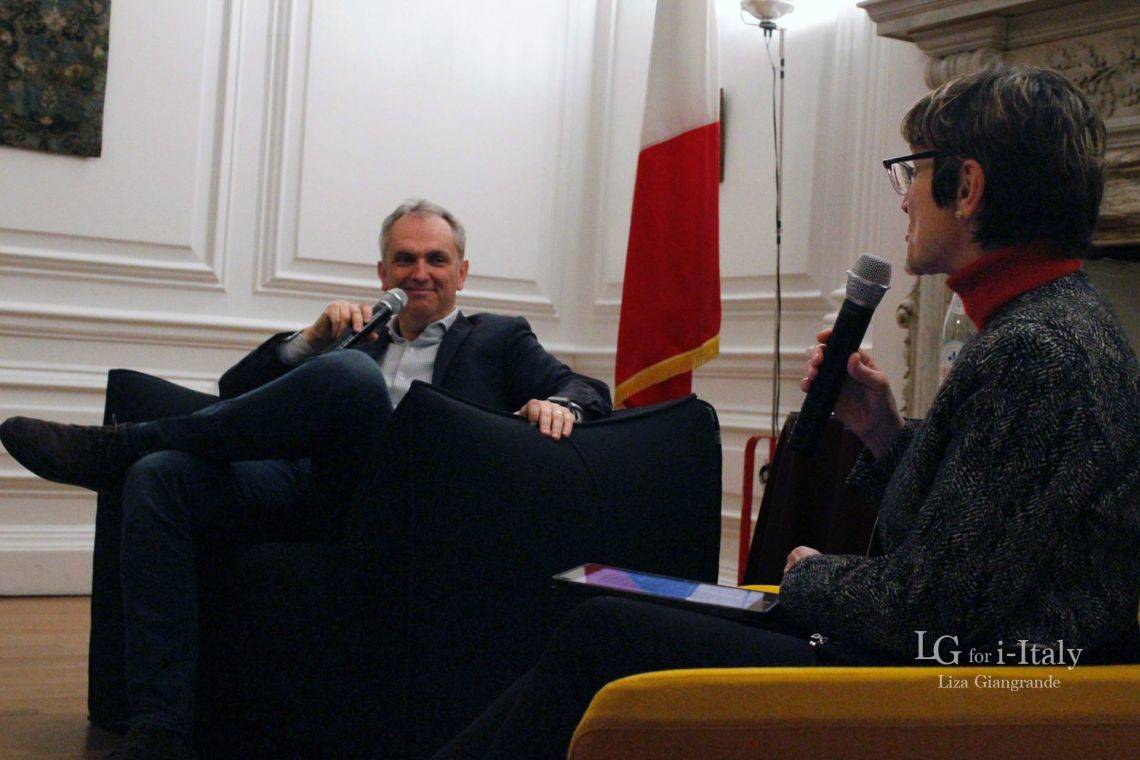
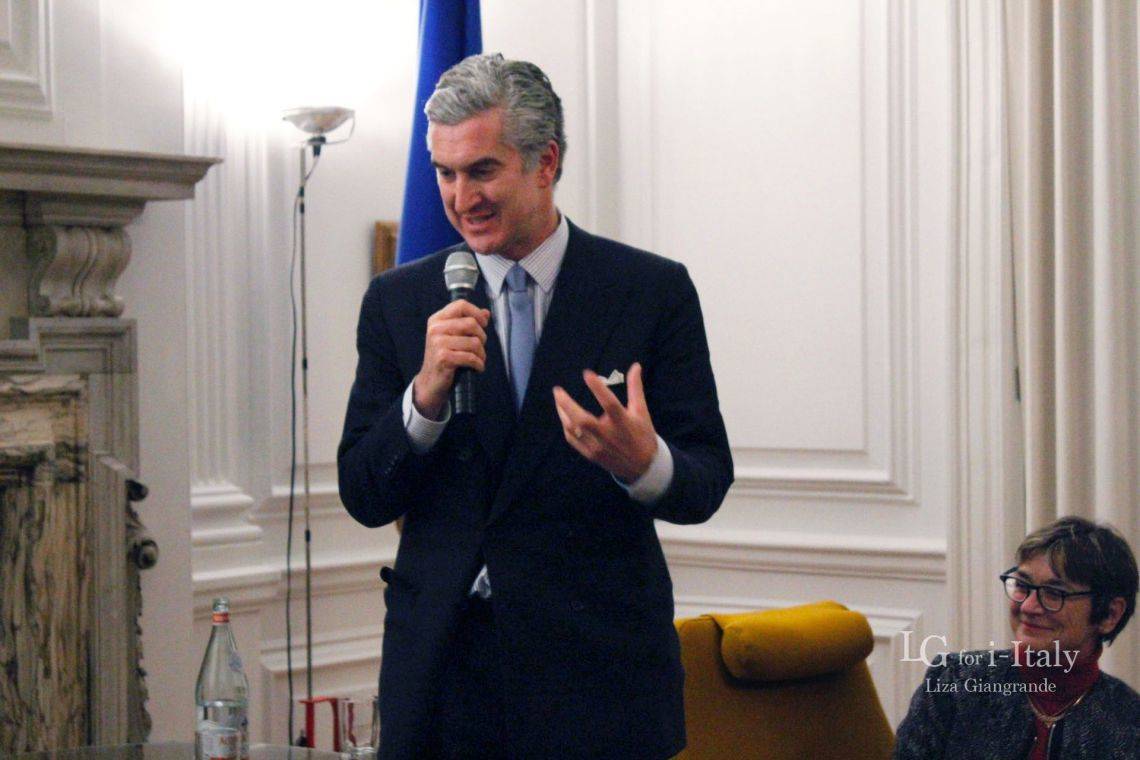
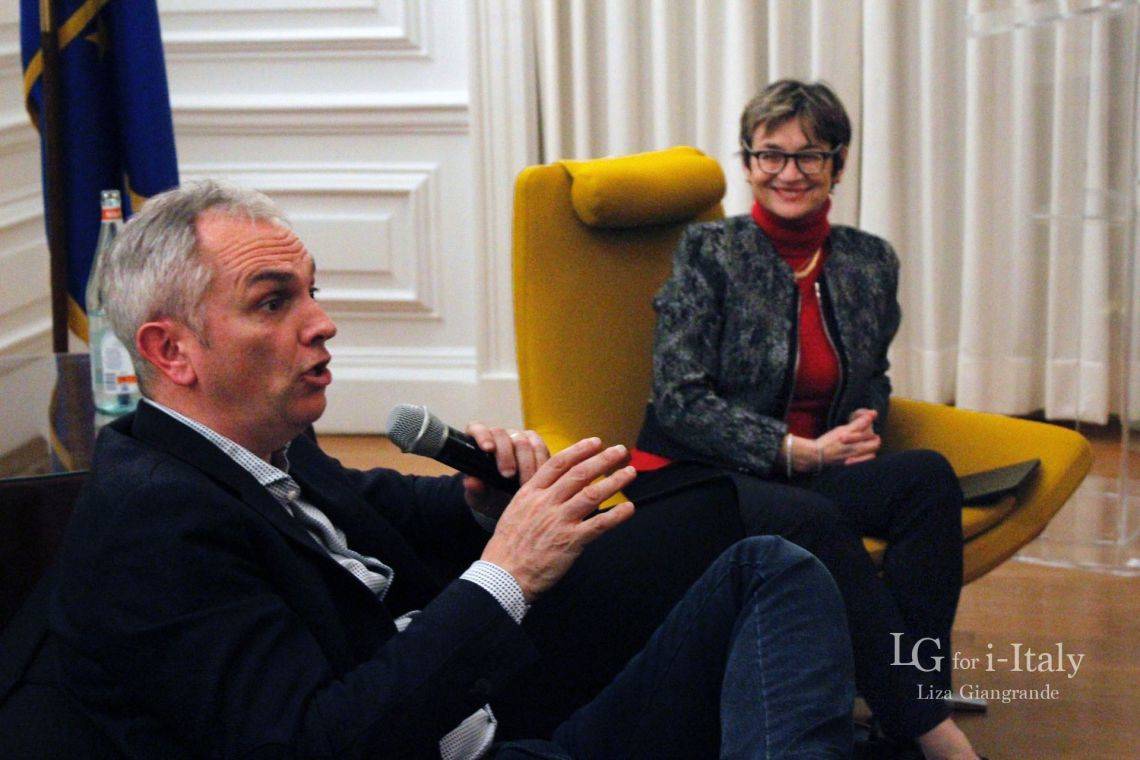
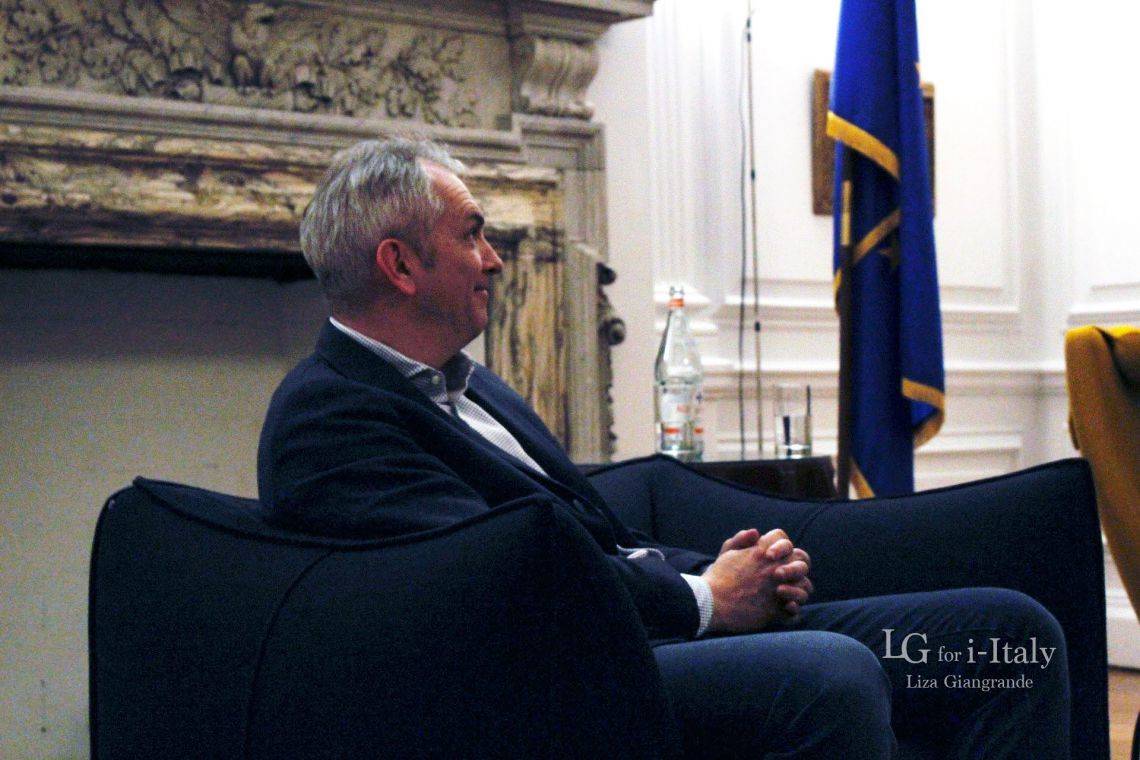
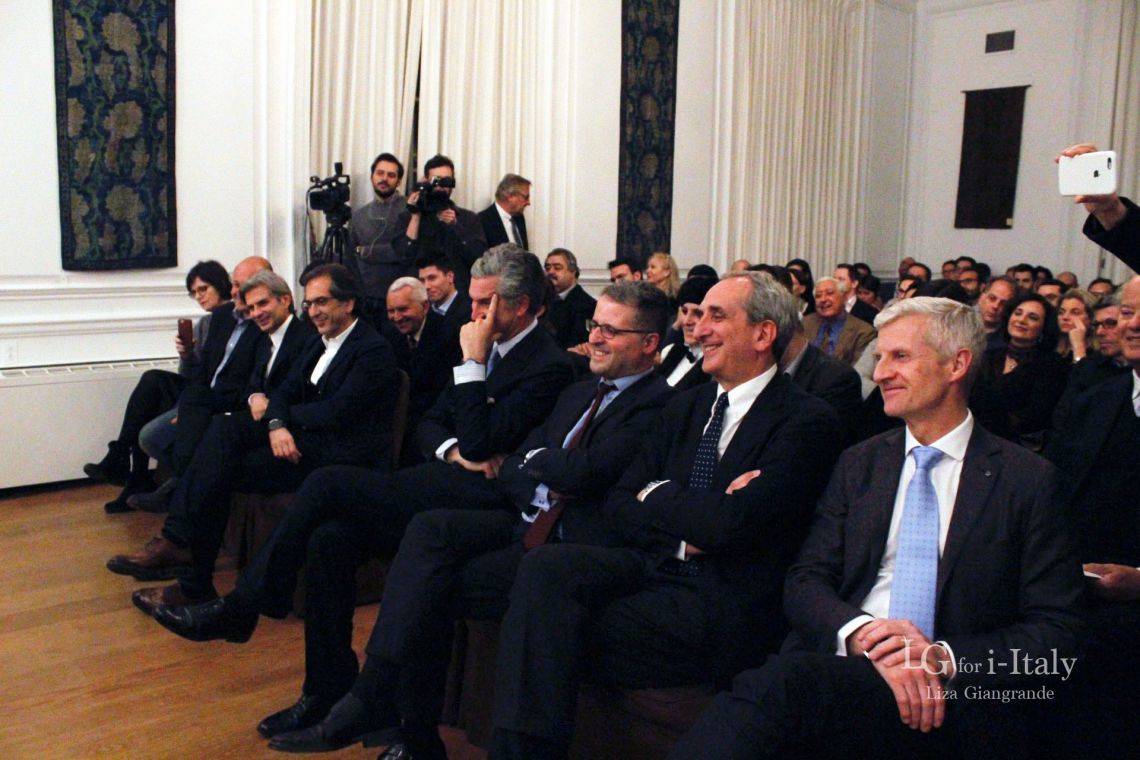
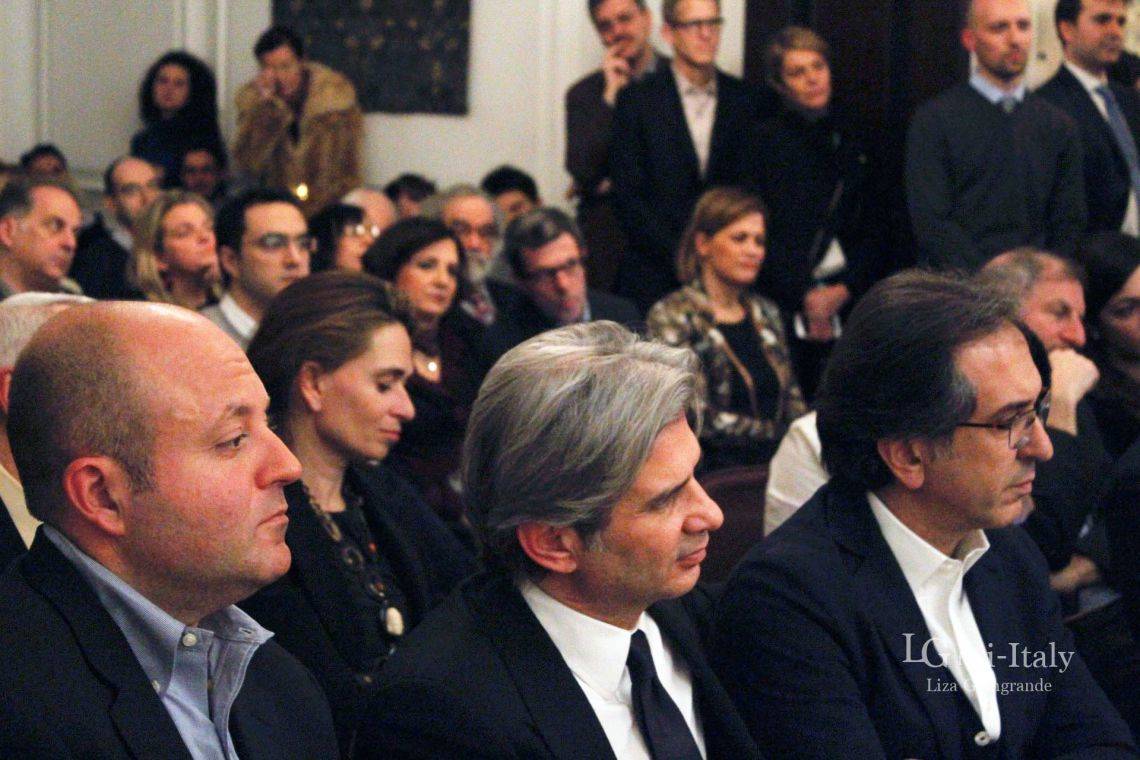






i-Italy
Facebook
Google+
This work may not be reproduced, in whole or in part, without prior written permission.
Questo lavoro non può essere riprodotto, in tutto o in parte, senza permesso scritto.